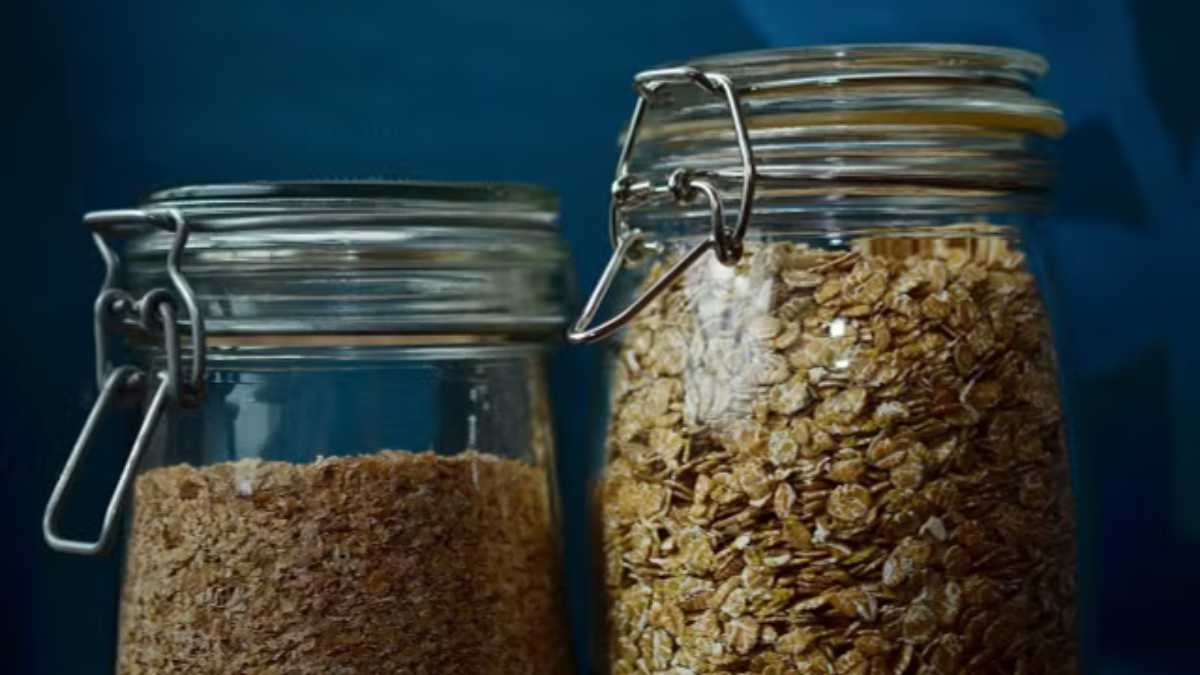In muesli, in smoothies, or in savory patties for lunch – oat flakes are currently a major food trend. How healthy is this superfood really? What should you consider if you eat oat flakes every day – and who should rather abstain?
Oat flakes have been part of human diet for centuries, especially in Europe. Currently, they are considered a superfood, with tons of recipes and dietary advice recommending eating oat flakes every day.
What are oat flakes exactly?
They are made from raw oats: first, the oats are cleaned of straw and processed for several hours with steam, then with dry heat. This creates the characteristic nutty aroma. Additionally, this heat treatment also weakens the activity of certain enzymes – called lipases – to prevent the development of a rancid and bitter taste during storage.
Next, the oat grains are separated from the husks and flattened under high pressure: the resulting flakes come from the whole grain, making it a complete product containing most of the nutrients. So, initially, there’s little reason not to eat oat flakes every day.
There are three types: Whole flakes or large flakes are made from whole oat grains, are quite resistant to chewing, and swell slowly when soaked and cooked. Fine flakes or small flakes are rolled from oat groats (oat grains cut into small pieces) and swell more quickly. Instant flakes are rolled from oat flour, they dissolve immediately when added to a liquid and can be drunk.
Nutrients and nutritional values of oat flakes
Oat flakes contain about 70% (complex) carbohydrates, are also a good source of protein (15%), and have a high content of unsaturated fatty acids as well as soluble fibers.
Additionally, oat flakes contain many minerals and vitamins: iron, phosphorus, magnesium, calcium, zinc as well as vitamins B1, B6, and E.
With 350 kilocalories per 100 grams, their calorie content is relatively high. However, this should not be a cause for concern, as oat flakes are a complete product with many complex carbohydrates and fibers. Therefore, the body takes relatively long to digest the flakes and blood sugar increases slowly. This means that a portion of oat flakes will keep you feeling full for a long time and prevent cravings.
What happens in your body when you eat oat flakes every day Your digestion is stimulated: the fibers in the flakes swell in the intestine, thereby increasing the volume of your stools. However, make sure to drink enough so that the fibers have enough liquid to swell. Oat flakes can contribute to beautiful skin, hair, and nails: the nutrients contained – such as biotin, zinc, silicon, and copper – are important for healthy skin, hair, and nails. Your nervous system and metabolism are strengthened by the B vitamins contained in oat flakes. Oat flakes support blood and bone formation due to the minerals they contain.
As with everything, the dose makes the poison. While it may be beneficial for health to eat oat flakes every day, in nutrition, it’s always best to aim for balance and diversity!
Properly combining oat flakes: the best way to consume them
Oat flakes are not only very popular but also very versatile: sweet or savory, there is a preparation suitable for everyone. However, there are a few points to consider when preparing:
To absorb as much iron as possible, you should soak the oat flakes – preferably overnight: soaking partially breaks down substances that inhibit iron absorption (phytates). If you like to drink coffee or black tea in the morning, let an hour pass before eating your oat flakes: the tannins contained in coffee and tea also inhibit iron absorption. A good combination is oat flakes with vitamin C-rich fruits or a glass of orange, currant, or elderberry juice: vitamin C increases the absorption of iron from plant sources. Opt for a muesli composed only of oat flakes and add nuts and fruits of your choice. Compared to ready-made muesli mixes, you can thus avoid added sugar and additives and know exactly what’s in your muesli. Who should avoid oat flakes
People with celiac disease (gluten intolerance) should avoid oat flakes or opt for products labeled “gluten-free.” Indeed, according to the definition, oats are considered low in gluten, or even gluten-free, but during processing, oats often come into contact with other gluten-containing cereals (for example, through the use of the same machines).



